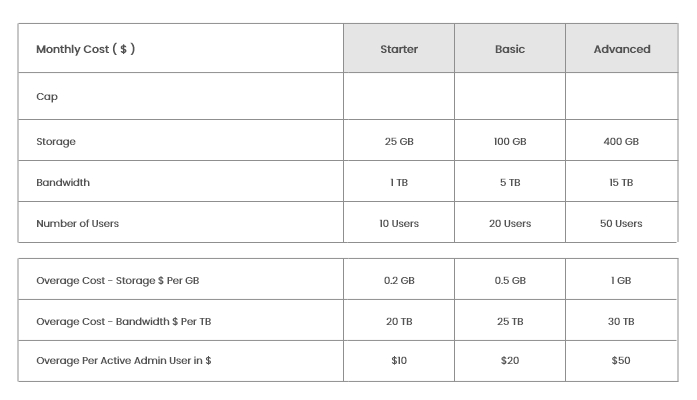



The Essential Checklist for Beginning SEO in 2023 - Part Two (2/2)
Evaluate and adjust your page speeds on a regular basis to improve user experience and search engine exposure...
Checklist for Technical SEO in 2023
Technical SEO, in addition to improving your website's content, may have a significant influence on your search engine results. Technical SEO is enhancing your website's technical features in order to increase its performance, speed, and user experience.
Let's look at a technical SEO checklist that will assist you make sure your website is ready for success.
1. Examine Your Page Loading Speed
Page speed is a monster that should not have an influence on your ranking criteria or user experience.
Page speed is one of the ranking variables considered by search engines such as Google.
Slow-loading websites can raise bounce rates, thus it's critical to monitor page loading speeds in technical SEO. This has a detrimental influence on user engagement and conversion rates.
Pages that load quickly tend to rank higher than slower-loading pages.
Evaluate and adjust your page speeds on a regular basis to improve user experience and search engine exposure. You will most likely experience increased visitors to your site as a result, which indicates a possibility for greater commercial outcomes.
2. Check that your pages meet the essential web requirements
Page loading speed is related to the other Core Web Vitals (CWV) indicators.
It is critical in technical SEO to ensure that your pages fulfill CWV since it affects user experience and search engine rankings.
CWV are a collection of measurements used to assess the performance of websites, including loading speed, interaction, and visual stability.
Google utilizes these metrics to assess a website's user experience, and sites that do not fulfill CWV may be punished in search rankings.
You may boost user engagement and happiness by optimizing your pages to satisfy these criteria.
Leading to:
- Improved search engine visibility
- Increased website traffic
- Increased conversions
3. Employ Schema Markup to Target Rich Snippets
Using schema markup is one technique to boost your website's rating. Schema markup is code that you add to your website to inform search engines about the meaning of your content. This allows search engines like Google to better comprehend your content and rank it properly.
Rich snippets enable you to include more information in your search results. Snippets can be found in a variety of media, including films, recipes, and maps
These rich snippets can help you stand out from the crowd and attract more people to your site by increasing click-through rates (CTRs). This indicates to search engines that you have high-quality material, which might help you rank better in SERPs.
4. Be Sure Your Site Is Mobile-Friendly
Is your website responsive?
According to studies, nine out of ten customers own at least one mobile shopping app. What is the most common reason for users to use apps? The best user experience.
Visitors who have a terrible user experience may not return. As a result, it's important to include this on your SEO checklist.
How do you go about doing this? It's not as difficult as you think.
- You may use responsive design to make your site fit multiple screen sizes.
- Resize and compress photos to make them mobile-friendly.
- Examine your website on various browsers and devices.
- Use Google Search Console to evaluate your website's performance and receive recommendations for improvements.
5. Search for 404 Errors
Broken links can have a detrimental impact on the SEO of your website.
These not only provide a terrible user experience, but they can also have an influence on your site's ranking in search engine results pages (SERPs). To avoid this, it is critical that you monitor for and repair broken website links on a regular basis.
Use Google Search Console to look for broken links and pages.
These tools might help you locate broken links and pages that Google has yet to index.
When you discover a broken link, you have a few options:
- Change the link to go to the right page.
- Build a 301 redirect to reroute the broken link to another page on your website.
- Delete the link entirely from your website.
Off-Page and Local SEO Checklist for 2023
Now that we've covered the fundamentals of technical SEO, let's take a look at off-page SEO. This includes aspects like link development, social media engagement, and brand mentions that occur outside of your website. This off-page SEO checklist can assist you in improving the ranks and online exposure of your website.
1. Have a plan for reporting on ranking success
You've worked hard on your SEO checklist, but are you missing anything? Perhaps measuring your ranking success?
You're doing well if you've made it this far, but you won't know for sure unless you're tracking your progress (rankings).
While creating a report, you should include information such as:
Your technical SEO efforts as well as your general technical health
- Traffic
- Backlinks
- Conversions
- Overall progress on goals
- Conversions
- Local SEO
- Backlink profile
- Top performing pages
- Rankings and tracked keywords
- Technical SEO
- What do you plan to tackle next?
- What activities have you accomplished?
2. Begin developing a link-building strategy for completed content
You should now begin developing a link-building strategy for all of your fantastic content in order to boost your SERPs even higher.
How do you get started, and why is link-building important?
Aside from improving your SEO, link building may improve organic search results and conversions.
Here are some easy pointers to get you started with link development right away:
- Write high-quality material and publish it as a guest post to reputable blogs.
- On your website, create a resource directory.
- Be certain that your material is well-written, valuable, and relevant to your intended audience.
- Investigate which websites would wish to connect to your work and contact them directly.
- Connect to authoritative sites in your posts and notify the authors/website owners.
3. Increase Social Media Activity
In today's world, your website cannot be the sole means for people to contact you.
Developing social media activity is critical in off-page SEO to:
- Boost brand awareness.
- Increase visitors to your website.
- Increase your search engine visibility (even using social SEO)
- Social networking networks allow you to interact with your target audience, exchange content, and create a community around your company.
- Producing engaging and shareable content might result in more backlinks to your website, which is an important component in search engine rankings.
4. Guest Posting Opportunities with Suitable Publishers
Not only may guest blogging help you develop your network, but it can also help you get some high-quality backlinks and enhance brand awareness.
You may acquire exposure to a new audience and promote your brand as an industry leader by guest blogging on relevant and reputable websites.
Linking back to your website can increase its authority and search engine results.
Conclusion
Following these basic SEO tactics will help your website rank higher in search engine results pages and boost your online visibility. Although this SEO checklist covers the fundamentals of search optimization, it's critical to stay current on the latest SEO trends to ensure your website maintains its high ranking.
While trends change, constants such as competition keyword analysis, minimizing picture size, optimizing for mobile, and using tools to analyze keywords are all components of your SEO checklist that will serve you well in the long run.
Hocalwire CMS handles the technical parts of keeping Large Sitemap, Indexing pages for Google, Optimizing page load times, Maintaining assets and file systems, and Warning for broken links and pages while you handle all these non-technical components of SEO for Enterprise sites. If you're searching for an enterprise-grade content management system, these are significant value adds. To learn more, Get a Free Demo of Hocalwire CMS.

